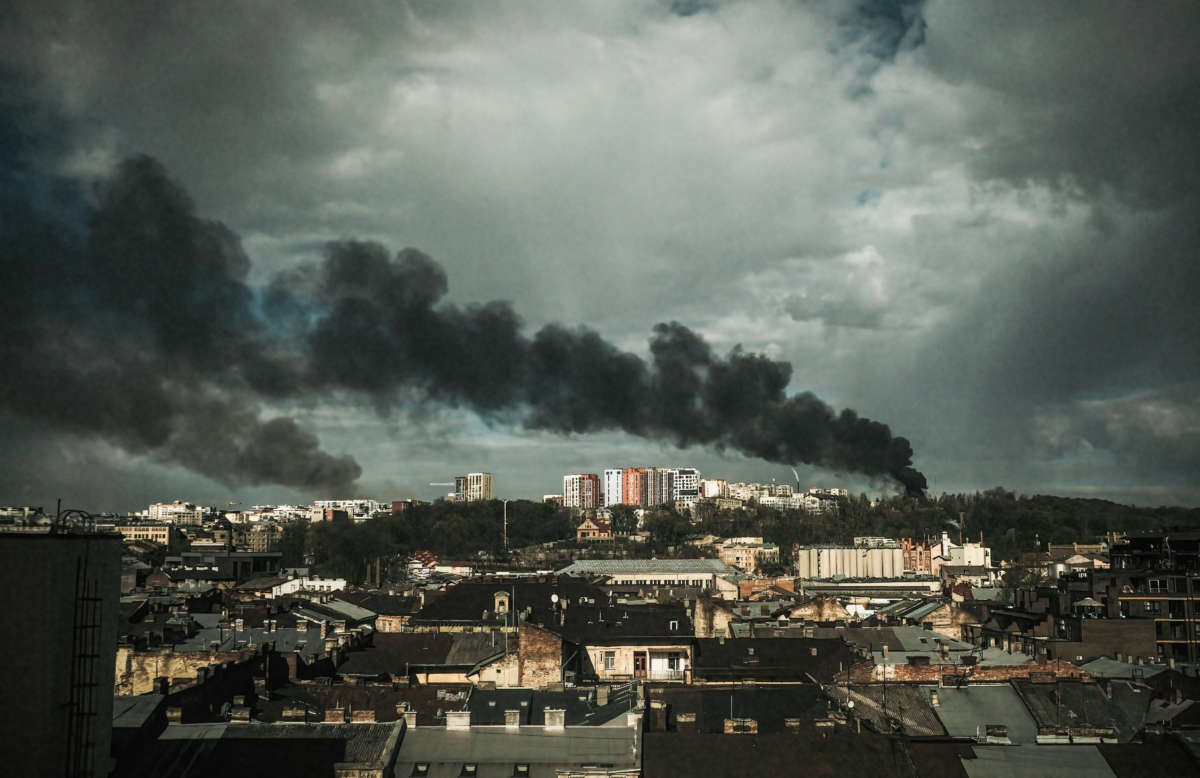Ukrainian President Volodymyr Zelenskyy said in a televised address late Monday that his country will continue to fight back as Russia ramped up its assault on eastern Ukraine with the goal of fully capturing the Donbas region, a more limited military campaign that comes after Moscow’s forces failed to seize Kyiv and other major cities.
“It can now be stated that Russian troops have begun the battle for Donbas, for which they have been preparing for a long time,” Zelenskyy warned Monday night. “A very large part of the entire Russian army is now focused on this offensive.”
“No matter how many Russian soldiers are driven there, we will fight,” he added. “We will defend ourselves. We will do it daily. We will not give up anything Ukrainian, and we do not need what’s not ours.”
While Moscow is focusing its offensive on eastern Ukraine — where Russia-backed separatists have been battling Ukrainian forces for years — its military is still attacking other parts of the country. Earlier Monday, Russian missile strikes killed at least seven people in the Western city of Lviv.
Russia also continued its efforts to capture Mariupol, a strategic port city in southeastern Ukraine that has become the site of one of the worst humanitarian disasters of the weeks-long war. Ukrainian forces in the besieged city have rejected Russia’s demands that they surrender.
“Securing Mariupol would free Russian troops up to move elsewhere in the Donbas, deprive Ukraine of a vital port, and complete a land bridge between Russia and the Crimean Peninsula, seized from Ukraine from 2014,” the Associated Press noted Tuesday.
Russia’s Defense Ministry said that the country’s forces struck nearly 1,300 Ukrainian targets late Monday and early Tuesday. Russian forces also seized the eastern Ukrainian city of Kreminna, the regional governor said Tuesday. Ukrainian troops have withdrawn from the city, the first Russia has captured during its renewed offensive.
The New York Times reported that “Ukrainian troops were fighting Russian forces across the sprawling eastern front on Tuesday, the Ukrainian military said, as the battle for control over the industrial heartland of the nation intensified.”
Iryna Vereshchuk, Ukraine’s deputy prime minister, said that because of the increasingly intense fighting, there will be no humanitarian corridors established Tuesday to help evacuate trapped civilians. Thus far, Russia’s invasion has displaced more than 10 million Ukrainians.
“Intense shelling continues in the Donbas,” said Vereshchuk. “According to Mariupol, the Russians refuse to provide a corridor for civilians in the direction of Berdyansk. We continue difficult negotiations on the opening of humanitarian corridors in Kherson and Kharkiv regions.”
Meanwhile, broader diplomatic talks aimed at securing an end to the war appear to be at a standstill. Last week, Russian President Vladimir Putin said peace negotiations were “at a dead end.”
A day later, the Pentagon hosted top U.S. arms makers as the Biden administration authorized another $800 million in military assistance for Ukraine. In the coming days, the U.S. reportedly plans to begin training Ukrainian forces on how to operate howitzer artillery systems as they brace for Russia’s eastern assault.
“The Russian invasion of Ukraine has brought immense suffering to the people of that land, while sparking calls for increased military spending in both the United States and Europe,” William Hartung and Julia Gledhill wrote for TomDispatch over the weekend. “Though that war may prove to be a tragedy for the world, one group is already benefiting from it: U.S. arms contractors.”
During a press briefing on Monday, a spokesperson for United Nations Secretary-General António Guterres called on “all parties to enact an urgent and immediate humanitarian ceasefire, which will enable the safe and secure functioning of humanitarian corridors, help evacuate civilian residents, and also deliver lifesaving humanitarian and medical assistance.”
“Genuine negotiations must be given a chance to succeed and to bring lasting peace,” said Stéphane Dujarric. “The secretary-general and the U.N. stand ready to support such efforts.”
Speaking against the authoritarian crackdown
In the midst of a nationwide attack on civil liberties, Truthout urgently needs your help.
Journalism is a critical tool in the fight against Trump and his extremist agenda. The right wing knows this — that’s why they’ve taken over many legacy media publications.
But we won’t let truth be replaced by propaganda. As the Trump administration works to silence dissent, please support nonprofit independent journalism. Truthout is almost entirely funded by individual giving, so a one-time or monthly donation goes a long way. Click below to sustain our work.
